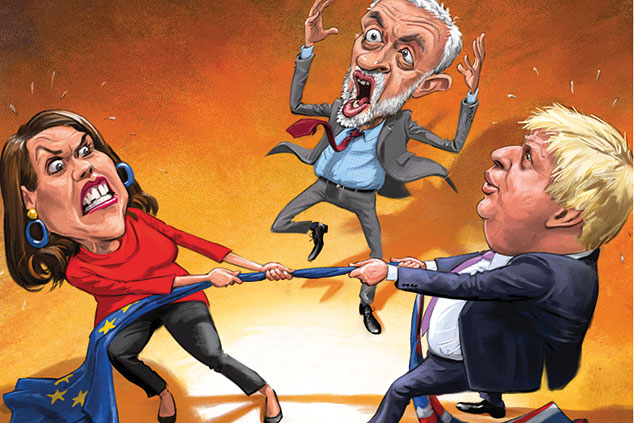
The process of leaving the European Union has descended into a farcical war of attrition. John Stepek looks at what it all means for your money – whatever the eventual outcome.
Whichever side of the Brexit debate you’re on, it’s been yet another week of confusing and depressing headlines. With the 31 October deadline looming, Prime Minister Boris Johnson was meant to be having a summit with the European Union (EU) at the end of next week. The hope was that we’d have some sort of deal agreed by then, which would avoid Johnson having to ask for an extension – or to challenge the legality of the Benn act, which could force him to do so. But at the time of writing the state of talks means it looks as though he might not even turn up. How did we get to this stage and, more importantly, what does it mean for your money?
Setting constitutional confusions aside, ultimately Brexit has stalled for one simple reason: the parliamentary arithmetic is against it. Johnson’s predecessor, Theresa May, managed to hamstring herself with her catastrophic 2017 election campaign. This left her without a majority, which in turn led to a situation where no deal – let alone one deemed acceptable by the EU – could get through Parliament. Meanwhile, it raised the hopes of all of those on both sides who would prefer Britain to “rethink and remain”, removing any incentive on the EU side to compromise. As a result of all this, we now have one major party in the UK – the Liberal Democrats under Jo Swinson – which is actively campaigning on a platform of ignoring the referendum result altogether; an opposition party that is trying to be all things to all voters by calling for a second referendum, the result of which it may or may not support; and a party of government that has had to expel 21 of its own MPs, leaving it with no majority in the House of Commons.
As Helen Thomas of Blonde Money points out, all of this really leaves Johnson with just two choices. Either he attempts to barrel out of the EU on 31 October, hoping that some combination of momentum and legal obfuscation can carry him over the finish line; or he treats this as one long election campaign, positioning himself and the Conservative Party to recapture disillusioned voters from Nigel Farage’s Brexit Party, as and when Parliament decides that it will allow a fresh general election to take place.
What this means for your money
Given where we are, what do investors need to prepare their portfolios for? It’s not easy, but it’s worth trying to consider scenarios that might have lasting impacts on your wealth. There are two dimensions to consider here. On the one hand you’ve got the Brexit outcome: will we leave, or will we remain (like it or not, the possibility of the latter needs to be considered). On the other, you’ve got the threat of a Labour government led by Jeremy Corbyn (again, like it or not, this would be a major change to the investment environment, the likes of which most under-50s have never seen).
Subscribers can read it in the digital edition or app